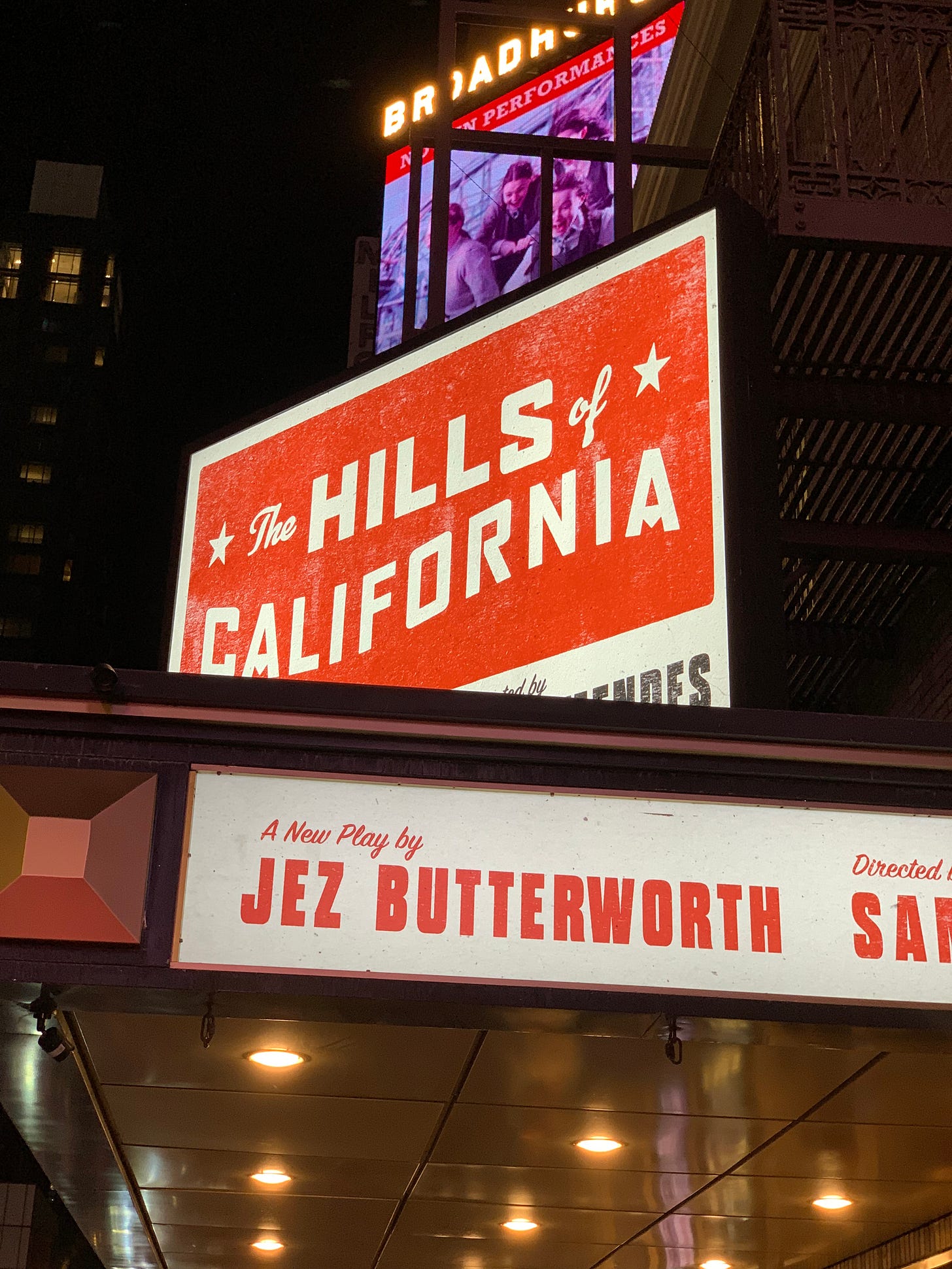Veronica (Laura Donnelly) runs a hotel in the 1950’s seaside town of Blackpool, Lancashire. A single-minded woman, Veronica is raising her four daughters for a life in show business as a vocal quartet in the style of the Andrews Sisters. Show business is gospel to Veronica and her four young daughters are her converts.
“What is a song?” Veronica asks her daughters in a kind of catechism. “A song is a dream… a place to be. Somewhere you can live. And in that place, there are no walls. No boundaries. No locks. No keys.”
Later, in 1976, three of the grown daughter gather in the old hotel to say their goodbyes to Veronica who is upstairs in her bedroom dying of cancer. But the fourth daughter refuses to join them. The three daughters wait for the fourth to arrive as there can be no closure or reckoning with the mother’s gospel of song until she does
Of the four daughters, Jill (Helena Wilson) is the caretaker of the group, a Masha who has bound herself to the care of the household and her mother. Ruby (Ophelia Lovibond) is the sexy one who has settled for a disappointing marriage. Gloria (Leanne Best) is the oldest and the bearer of a seething grievance against her mother’s favorite daughter Joan.
Joan (played as a young woman by Lara McDonnell and as an older woman by Laura Donnelly) is the star of the group and the only one who will escape Blackpool for California, the promised land of popular song. Joan is the daughter who Veronica lets most intimately into her confidence, instructing her in her increasingly amoral gospel of show business.
All of the performances are so brilliant in their detailed characterizations that it feels unfair to single out only one. But Laura Donnelly playing both the driven Veronica and her grown daughter Joan gives a performance that is both chameleon-like in that it feels like two completely different women yet also eerily connected because we see the communicating obsessions shared by mother and daughter.
The direction by Sam Mendes is some of the best I have ever seen on a stage. It takes the many strands of Butterworth’s sprawling play and binds them into a cohesive, believable, and emotionally powerful dramatic whole. In a family play where characters mirror and exchange familial roles with each other a director like Mendes is essential to build those shifts of character across an ensemble and his work here is superb. The set by Rob Howell exists solely to dramatize the characters and to build to a shattering moment later in the play. Like Mendes’ direction, the production’s visual elements are not there to draw attention to themselves but to make the story and the performances live as fully as possible on stage.
At first I thought the play might be a blend of Chekhov and the musical “Gypsy” as Butterworth’s last play “The Ferryman” was a pastiche of many other borrowings from classic Irish plays. But even though there are elements that feel borrowed in “The Hills of California” I found it to be perhaps Butterworth’s most emotionally satisfying play. It is a heartbreaking play but it is not sentimental. It is too filled with humor and horror for that. The three act structure that Butterworth uses is deeply satisfying here and it allows us to get to know intimately its characters and their world. Like “Jerusalem”, "The Hills of California” feels like a state of the British nation play that also reflects our own U.S. malaise; the lure of a song that has ended long ago and the fear that it just might haunt us forever.




